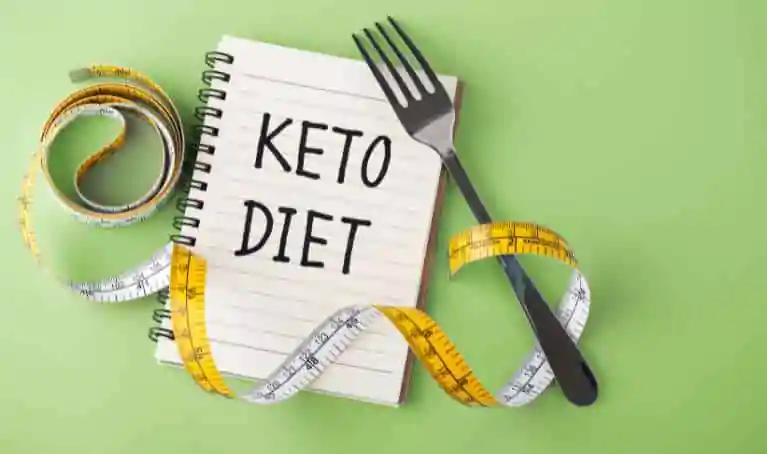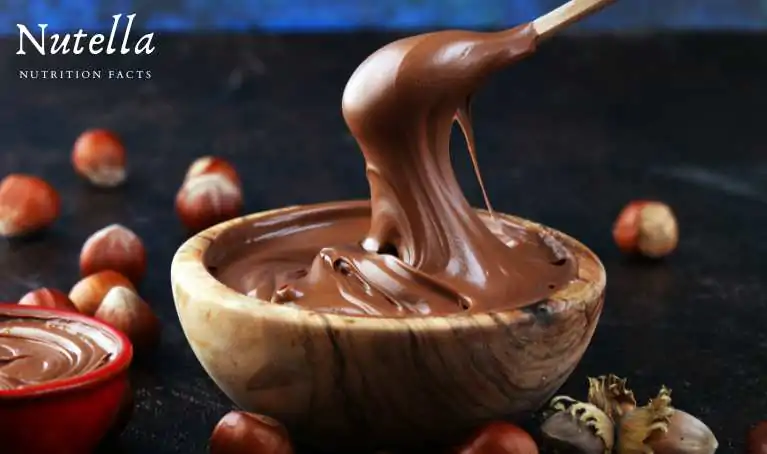When we think that what makes us rush to the washroom actually when we consume protein supplements in the form of protein powder or shakes is the metabolism that occurs in our body. As soon as we consume a greater-than-normal amount of protein in any form, the body isn’t used to it, it reacts in a certain way. This includes bloating, gas, abdominal discomfort, burning sensation, constipation, or diarrhea.
One reason for this may be the high fiber content present in protein shakes. Another one might be casein or whey protein whose origin is dairy sources. Some people are unable to digest dairy products due to the absence of lactase enzyme in the intestine making them lactose intolerant. As a result of which, some people may face excessive urge to excrete. Some of the detailed aspects of protein metabolism and its effects on the human body are discussed below.
What is Protein?
Protein, as we all know, is one of the macronutrients our body requires for the growth and maintenance of the body. Amino acids are building blocks of proteins that are required by the body for almost every process occurring inside. Our human body is designed in such a way, our hormones e.g., insulin, glucagon, oxytocin, and somatotrophin are proteins in nature, enzymes working in the body are protein in nature, muscles are formed of proteins, hair, nails, and skin are made up of different kind of proteins.
To your surprise, protein is the precursor of the happy hormone, endorphin in the body that will make your mood lighter making you stress less ultimately saving you from bad mental health days.
Above all, proteins are a great source of energy for our body. Even though carbohydrates are the most readily available source for the body, proteins can take this role in the absence of carbohydrates and facts. Consuming a high-protein diet can make you feel full for longer periods and ultimately reduce cravings.
This can prove extremely beneficial if you are thinking of giving up on the extra inches and pounds. Consuming a high protein diet low in fats might prove a great weight loss strategy promising you a visible reduction on the weight scale. This can actually make you look slimmer in the morning.
What Is the Normal Protein Requirement for a Healthy Individual?
The next question that arises is How much protein you need to consume daily? The answer is quite simple.
Daily protein requirement= 0.8-1g per kg of body weight
This is the protein requirement for a normal and healthy individual. If there is a disease condition, the requirements vary depending upon the degree of illness and severity.
This requirement is fulfilled by a daily diet containing food from all the groups. If the optimum requirement isn’t fulfilled through diet, intervention may be done upon the dietitian’s advice. He/ she may prescribe supplements in the form of protein powders readily available in the market.
Sources and Types of Proteins
The proteins are of different types and can be classified into high biological value and low biological value proteins, depending upon their ability to get absorbed in the body and blood. HBV and LBV proteins come from different sources listed in the table below:
| High Biological Value Proteins | Low Biological Value Proteins |
| Comes from animal sources | Comes from plant sources |
| Common sources include | Common sources include |
| 1. Organ meats like liver, brain | 1. Beans like kidney, white, and green beans |
| 2. Lean meat like chicken, fish | 2. Nuts like walnuts, peanuts |
| 3. Dairy products like milk, cheese | 3. Seeds like flaxseeds, chia seeds |
| 4. Eggs | 4. Lentils and whole grains like oats |

How Protein Is Digested?
For every process occurring in our body, we have a specified mechanism. In this case, protein digestion is also a highly complex process requiring several enzymes that speed up the process and the ultimate result is protein breakdown. The enzyme “protease” is required to catalyze the proteins into smaller peptides suitable for absorption in our body and gives us energy.
Almost all the protein that we consume goes undigested till it reaches the stomach where Pepsin is there to break it down. After the digestion of pepsin, it goes into the small intestine where maximum protein digestion takes place and releases energy. The proteins are broken down into smaller dipeptides, tripeptides, and individual amino acids by the action of protease that is activated by the trypsin secreted by the small intestine. These smaller products are then transported to the liver.
To aid the process of digestion of proteins, we may take different types of herbal teas that are extremely beneficial for the digestive system. These include cinnamon tea, Estafiate tea, and rosemary tea.
Effects of Proteins on Gut Health
As we have now understood the whole mechanism of protein breakdown and its journey through our gastrointestinal tract, we can now better explain the relationship between proteins and GUT health. Protein, when consumed in normal amounts goes through the GIT tract and yields energy, the problem arises when we consume more than normal protein.
First of all, the body isn’t used to that much quantity, making the body work harder to digest that protein. This makes our stomach upset leading to a feeling called abdominal discomfort or indigestion.
Further, there is a feeling of bloating and gas production due to the disturbance in gut microbiota. The condition may worsen and lead to diarrhea. Constipation may also occur as the stool gets harder and more difficult to pass. Try to pair your proteins with different fruits and vegetables for better absorption.
Protein Supplements
Protein supplements may be an option if you are malnourished, underweight, protein deficient, anemic, or if you are an athlete. The fact of the matter is whether you are underweight, or you are an athlete, never ever consume protein supplements without expert advice. A dietitian is well aware of your body’s needs and he knows how much supplement you need to take.
Never follow YouTube videos and Instagram reels blindly and takes the game into your own hands. Taking too much protein without knowing your body’s needs may harm instead of benefit. So, let’s discuss protein shakes that are in the limelight these days and are promoted by many influencers without knowing their side effects.
What Are Protein Shakes?

Protein shakes are the shakes that we prepare by adding protein powder in milk along with some other ingredients like nuts, seeds, bananas, and oats. There are multiple recipes available on the internet for preparing protein shakes. When paired with exercise or strength training, these can do wonders. They can be used as healthy post and pre-workout snack options. The problem arises when you are consuming too much protein in this form. Since protein powders are generally protein isolates, they are solely proteins, no fibers, and fats.
Do Protein Shakes Make You Poop?
There are different theories and viewpoints when we talk about protein shakes making you poop. It is believed that consuming protein shakes can make you poop multiple times during the day. Let’s suppose you are not taking protein supplements for a month or so, and suddenly you start taking protein shakes as meal replacements, and boom. The body which is not used to this much protein will be surprised by the spontaneous invasion.
Here you drink the shake and there you are seen rushing towards the lavatories. There can be multiple reasons for this upset in your poop routine.
Why Do You Poop More Often After Protein Shake Consumption?
There can be multiple reasons responsible for pooping more often. These are described below;
1. The Source of Protein Needs Your Attention
Let us start with the source of protein. Protein has multiple sources including animal and protein sources. The animal sources are obtained either from cows’ milk or eggs. The proteins coming from cow milk are casein and whey protein, both high biological value proteins. But nature acts a bit differently as there are some people that are unable to digest these.
Ultimately, they will poop as soon as they consume protein shakes in their diet. This can be addressed by diluting the shake with some water. Read the labels and pay attention to the source of proteins while buying. Buy the products that are made up of plant proteins i.e., vegan protein powder.
2. Lactose Intolerance Might Be the Culprit
Lactose sugar present in the milk is digested by the lactase enzyme present naturally in the intestine of the human body which aids in the digestion of milk. But, if the person is lactose intolerant, it means that he or she doesn’t have the required enzyme in the body, the lactose will not get digested. This will make him poop. Not only poop, but the condition may also worsen and develop severe diarrhea and bloating with the production of gas. The GIT Tract as a whole gets affected and the microbiota gets disturbed leading to severe diarrhea.
3. Protein Isolates or Concentrates?
Protein isolates or concentrates? This is the talk of the town nowadays. Protein isolates mean isolated protein, where there is only protein and a negligible amount of fats. It contains about 90 percent protein per scoop of the supplement. On the other hand, protein concentrate means a less processed version. Protein isolates when consumed in the form of shakes may make you poop more and even have diarrhea.
It comprises 70 to 80 percent protein per scoop. So, if your body is unable to digest protein isolates, shift to concentrates. This might help with the worsening condition.
4. Artificial Sweeteners Can Make You Poop
Sweeteners from natural sources like sorbitol, xylitol, and maltitol added to the protein powders can be the culprits for more than normal washroom visits. These are sugar alcohols that are obtained from natural sources like plants and grains.
5. High Fiber Content, Really Good or Bad?
The high insoluble fiber content present in vegan protein powder leads to abdominal discomfort leading to symptoms like bloating, gas, constipation, and diarrhea. Extremely high fiber contents of the protein supplements when taken individually cause discomfort. These must be paired with water intake to balance it out
6. Effect of Proteins on Bowel Movements
Protein digestion in the stomach by the effect of pepsin leads to the emission of sulfates that can act as laxatives leading to frequent bowel movements. These more than-normal bowel movements are due to the excessive protein percentage present in the supplement.
This can be balanced by the intake of protein shakes with a fiber-rich diet or by adding fruit can balance this.
7. Developing Sensitivity to Food Additives
You might be sensitive or allergic to the food additives present in the protein supplement. You must be a label reader to avoid the discomfort that comes afterward. Develop the habit of reading labels while doing grocery shopping so that you are well aware of the ingredients present in the supplement. This will eliminate the risk caused by that particular food ingredient or additive.
It is safe to opt for organic and minimally processed food supplements. More the processing, the greater the side effects.
8. Athlete Scenario
The whole scenario gets complicated if you are an athlete or strength trainer. While training, the body is engaged in high metabolic processes, burning a great number of calories, and using fuel from different sources. Training also leads to muscle building that actually needs proteins. But soon after ending the training, if you consume protein that too higher quality and greater amounts, this leads to disturbances in the GIT tract.
The recovery period after the training is half an hour to 1 hour, which requires rest and not eating anything. If you eat high-protein foods or consume high-protein shakes, the body has to work on its digestion along with the repair process of muscles. This will burden the gastrointestinal tract and lead to the urge to poop.
Side Effects of Consuming Too Much Protein
Too much protein is harmful to your body in multiple ways. The body is used to doing things its own way, if you interfere or overburden it, the body fails to function.
Consuming too much protein is actually harmful as it may cause the following:
- It burdens your kidneys, and they start to dysfunctional. The condition may worsen leading to permanent damage to kidneys.
- High protein sources like meat, dairy, and eggs come with higher amounts of saturated fats too. This may be the leading cause of the development of cardiovascular disorders.
- The excessive amount of protein is stored in the form of fats that contributes to weight gain.
- Higher protein contents may cause the condition hypoalbuminemia which is associated with nausea, vomiting, and abdominal pain.
- Excessive protein intake will burden your pancreas and gall bladder which contributes to the digestion process. This is characterized by epigastric pain, dysphagia, and abdominal discomfort.
- More calcium is excreted in the urine if you are consuming high amounts of proteins.
- Eating too much protein creates an acidic environment in the stomach due to excessive secretion of pepsin in the stomach in response to high amounts of proteins.
Hence, you can consume protein shakes in your everyday diet but in moderation. Try to pair it up with fibrous foods, high water intake, and try to be more active to speed up your metabolism. You should be training or exercising 5 days a week for 30 minutes to consume higher amounts of proteins.
Don’t stop now, keep exploring:




